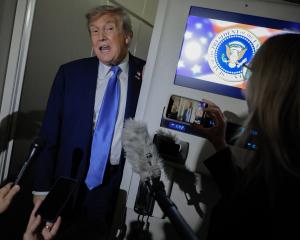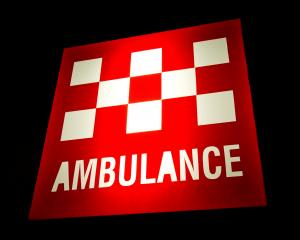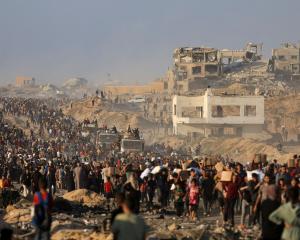No New Zealanders have died in the attacks in Mumbai which have now killed at least 100 people, but some have been caught up in the chaos and the Government here has upgraded its risk advisory.
The co-ordinated attacks throughout India's financial capital continued throughout today, with gunmen targeting tourists and taking hostages at luxury hotels.
The Ministry of Foreign Affairs and Trade (Mfat) has upgraded its travel advisory to Mumbai to high risk from some risk, and advised New Zealanders against all tourist and non-essential travel to Mumbai.
Mfat said tonight it had received inquiries about 64 New Zealanders thought to be in Mumbai. "Forty seven of those have been confirmed as safe and well and we are still making inquiries about 17. Not all these are necessarily in Mumbai."
The ministry said separate to that, 53 New Zealanders were registered with it as being in Mumbai. "We have confirmed that 15 of those are safe and well. We are still making inquiries about the 38 remaining."
It said it was not aware of any casualties but was continuing to seek information about the situation of New Zealanders who might be in the area.
The New Zealand High Commission is sending two consular officials from New Delhi to provide an on-the-ground presence in Mumbai.
At least six foreigners were among the 101 people killed. There had been 287 people injured, police said.
Mumbai-based businessman Darshan Shetty, who works for New Zealand internet security business SMX, said the attacks started after 10pm last night local time when many people were asleep.
"I've had some very frantic calls this morning - not just from India but Auckland as well," Mr Shetty told NZPA from Bangalore where he arrived from Mumbai this morning.
"A lot of worried people - I'm on a travelling job so people don't know where I was at that time."
He had kept in touch with friends and workmates in Mumbai, where schools and businesses were shut.
"People are very scared - it's not a bomb, it's people with guns running around just shooting at random which is crazy, it's never happened before."
His wife had also left Mumbai for work before the attacks, travelling to Kolkata.
Mr Shetty was supposed to return to Mumbai in two days' time, but was not sure if he would be able to.
"I don't think anyone has a clue of what's really happening."
A lot of people were accusing intelligence agencies of failing miserably because of the size of the attacks and the planning required, he said.
"I think they're in for a very long fight. Supposedly these guys are armed with a lot of grenades, so they might have to wait for special armed forces to come down because local police will not be able to manage grenade attacks."
Another New Zealand businessman, Steve Simms, sat in his barricaded hotel room in Mumbai early today watching the hotel he normally stays at burning.
Mr Simms said the Taj Palace Hotel was full when he arrived, so his group booked into another hotel in the Taj chain across the road.
"The chaos in Mumbai has accelerated tonight into absolute madness," he told NZPA.
Later Mr Simms took a hotel car and drove to the airport, hoping to catch a flight he had booked to return home.
He said armed guards had barricaded streets. "It is certainly a a city in shutdown," he told Close-Up as he drove.
"Once I'm on that plane I will certainly be having a quiet beer to celebrate," he told Close-Up.
He said he intended to return to Mumbai in January.
Foreign Minister Murray McCully condemned the attacks, saying they were a cowardly attempt to cause widespread, indiscriminate casualties among innocent civilians.
Scores of tourists remained trapped in the Taj Mahal hotel, a 105-year-old city landmark, and the five-star Trident Oberoi in Mumbai's downtown peninsula, its financial and tourist heart, officials said.
The little-known Deccan Mujahideen claimed responsibility for the attacks, in which 12 policemen were killed including the chief of the police anti-terrorist squad in Mumbai.
A wave of bomb attacks in recent years have largely been blamed on Islamist militants, although police have also suspected Hindu extremists of carrying out some bombings.












